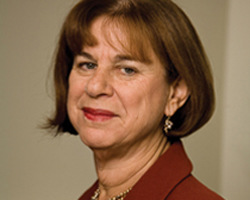What are the accomplishments you are most proud of?
TASC's roots are in the movement to equalize opportunities for all kids. I'm most proud of working with extraordinary public and private partners to establish sustainable, effective strategies to give disadvantaged students more opportunities to discover and develop their talents; more support to overcome the challenges of poverty; and more time to achieve at the high levels essential for success in the global workplace.
Where do you see the field in ten years?
I see national recognition among schools, families, and great youth-serving organizations that none of us can do it alone. We are always stronger when we blend our talents and resources to give all kids equal opportunities to succeed.
What are the biggest opportunities for the afterschool industry?
Our kids live in a world of constant change. Our greatest opportunity is to anticipate those changes and to help kids develop the knowledge and healthy habits of mind they will need to thrive.
What are the biggest challenges facing afterschool?
By the time they reach sixth grade, middle-class kids have likely spent six thousand more hours learning than kids born into poverty, and their parents have spent tens of thousands more dollars enriching their education. Our greatest challenge is to close those opportunity gaps.
What makes an afterschool program successful?
When a program has clear goals for kids and it meets those goals, it's successful. I look for these four core elements: strong school-and-community partnerships; more time for a balanced curriculum; engaging and personalized learning; and a sustainable cost model.
Edited by Amy L Charles, editorial director of AfterSchool Today magazine, the Official Publication of the National AfterSchool Association.

